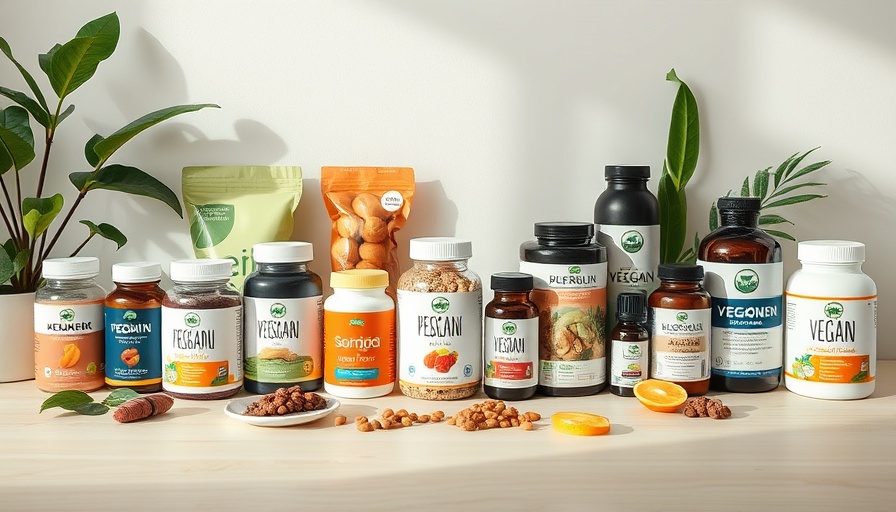
Vegan Diets and Nutrient Awareness: What You Need to Know
As more individuals embrace a vegan lifestyle, research reveals that while these diets offer impressive health benefits—including reduced risks of heart disease and cancer—there are specific nutrients that require close attention. According to a new study from New Zealand, long-term vegans often meet their protein needs, but many might not be getting enough of two essential amino acids: lysine and leucine.
The Study's Key Findings
Published in the journal PLOS One, researchers at Massey University analyzed food diaries from 193 long-term vegans. The findings indicated that while approximately 75% of participants were achieving their daily protein goals, only about half were consuming adequate amounts of lysine and leucine—two vital amino acids critical for various bodily functions, including muscle maintenance and immune support.
Understanding Amino Acids: Lysine and Leucine
Amino acids are the building blocks of proteins, and there are nine “indispensable” amino acids our bodies cannot synthesize. Lysine, for instance, is vital for synthesizing carnitine, which aids in converting fatty acids into energy. Leucine, on the other hand, is particularly important for muscle recovery and growth, as it facilitates the transport of other amino acids into muscle tissue after a workout.
The Plant-Based Advantage
The good news is that meeting your amino acid needs on a vegan diet is feasible. As nutrition education specialist Anna Herby points out, while all plant foods contain essential amino acids, the levels vary. Legumes, nuts, and seeds are particularly rich sources of lysine and leucine.
Strategies for a Balanced Vegan Diet
To ensure adequate intake of lysine and leucine, focus on incorporating a variety of whole foods into your daily diet. Here are some simple strategies:
- Variety is Key: Include a diverse range of legumes such as lentils, chickpeas, and black beans, complemented by nuts and seeds.
- Whole Grains: Opt for whole grains like quinoa and farro, which not only provide protein but also enhance overall nutrient intake.
- Fruits and Vegetables: These should form the foundation of your diet, offering a wealth of vitamins and minerals.
By planning your meals mindfully and incorporating high-quality plant foods, you can easily meet your amino acid needs and reap the benefits of a vegan diet.
The Broader Implications: What This Means for Vegans
This research serves as a crucial reminder that not all protein sources are created equal, especially in plant-based diets. This understanding can empower individuals to make informed choices about their meals, ensuring they receive the full spectrum of nutrients their bodies require. For vegan beginners and veterans alike, it emphasizes the importance of balanced meal planning and education about the nutritional components of foods.
Why Nutrient Diversity Matters
Improving dietary quality is not just about increasing protein intake; it is about ensuring that the protein consumed also provides the necessary amino acids in adequate amounts. As many people transition to veganism for health and ethical reasons, being aware of these nutritional considerations is all the more significant.
Your Healthy Vegan Journey Starts Here
If you’re exploring a vegan lifestyle or looking to enhance your current diet, remember that balance and variety are your allies. Prioritize incorporating a wide range of sources to make the most of your meal plans—your body will thank you!
As you embrace plant-based living, consider this: the journey toward health and sustainability is not merely about what you avoid, but what you choose to include in your life. Adopt these strategies, and you can enjoy the full benefits of a vegan lifestyle.
 Add Row
Add Row  Add
Add 




 Add Row
Add Row  Add
Add 

Write A Comment